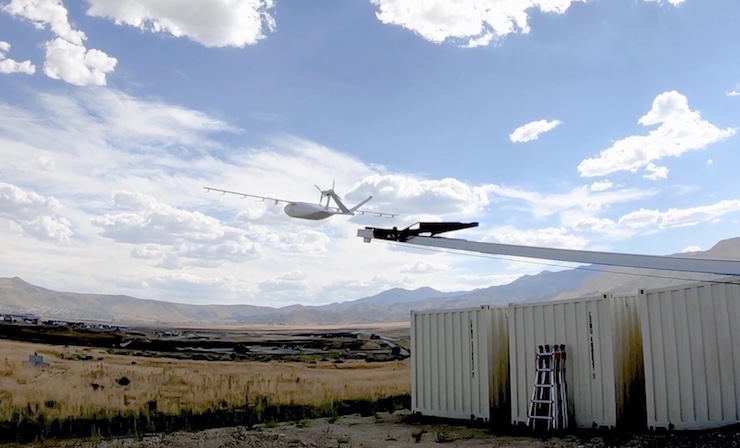Thanks to Zipline, Patients Get Medicine Delivered By Drone

Zipline, the world leading drone delivery service, has just announced a partnership with Intermountain Healthcare in Salt Lake City Utah to deliver prescriptions and over-the-counter medications to hospital patients via unmanned aircraft. The drones, which resemble small winged aircraft, will deliver medical packages to patients’ backyards or to designated areas using GPS and sensor technology that can identify obstacle-free drop zones.
Zipline will deploy an initial fleet of five electric-powered drones – each 6 feet long and weighing 40 lbs. with a wingspan of 10 feet – out of its Salt Lake Valley distribution center and will confine its initial deliveries to the Salt Lake Valley Area. However, once proven safe and effective, the company hopes to expand its medical supply deliveries to the entire city and to Utah as a whole.
Zipline has already pioneered drone-based medical supply delivery in Africa, beginning in Rwanda in 2016. More recently, in 2020, Zipline received an emergency authorization from the Federal Aviation Administration (FAA) to deliver badly needed COVID vaccines and protective masks in partnership with Novart to residents of remote towns in North Carolina. Later that year, it began a partnership with Walmart in Arkansas, initially to deploy health and wellness supplies. Based on that initial success, Zipline has since expanded its cargo deliveries to include a full range of Walmart food and household products.
Zipline first planned its Salt Lake City operation back in November 2021 but it took months to work out the logistical details and to secure FAA approval. One long-standing issue expressed by local authorities was ensuring the safety of local residents in the path of the planned drone flights. Initially, Zipline’s flights will not be fully autonomous but will be closely monitored by remote operators that can intervene immediately should problems arise. Flights will also be limited to a short radius distance from the company’s distribution center. In addition, the drones won’t land or hover close to the drop zones but will remain at an altitude of 60 feet, dropping their packages to the ground safely with the help of a small parachute.
Assuming its initial deliveries prove successful, Zipline expects to receive additional FAA approval to begin remote deliveries with fully autonomous drones sometime next year. The company hopes to add a string of new distribution centers to reach 90% of households and designated drop-off centers throughout Salt Lake City over the next five years. Eventually, Zipline hopes to expand its operations to Utah as a whole.
Zipline’s deliveries to impoverished villages in Africa – including Nigeria, Kenya and Ghana in addition to Rwanda – have already bought the company considerable acclaim. In addition to basic medicines and supplies, Zipline also delivers whole blood, platelets, frozen plasma and vaccines. In Rwanda, it is estimated that 75% of all blood delivered outside the nation’s capital arrives via Zipline’s drones. In 2021, the company also began operations in Japan to deliver medical supplies to remote islands inaccessible to conventional transport. As of April 2022, Zipline drones have made over 20 million miles of flights across 275,000 commercial deliveries, according to internal company records.
|